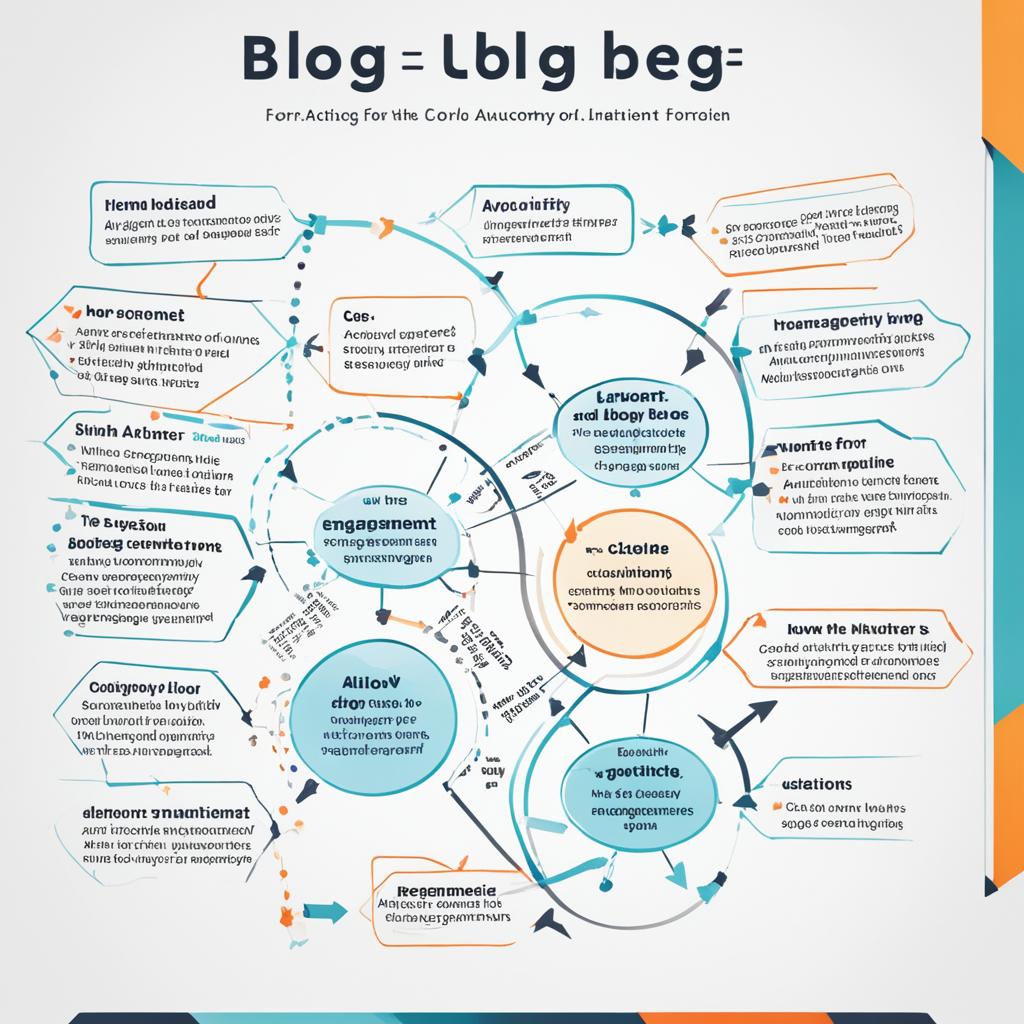Have you ever wondered what exactly a blog is? Or how bloggers create and maintain them? In today’s digital age, blogs have become a vital part of our online experience, offering a platform for individuals and businesses to share their knowledge, ideas, and stories with the world. So, let’s dive into the world of blogging and explore what it’s all about.
A blog is essentially a regularly updated website that provides insights into a specific topic. It started as an online diary where individuals could share their thoughts and experiences. Over time, blogs have evolved into a versatile platform that covers virtually any subject you can imagine. From fashion and food to travel and technology, there’s a blog out there for almost every niche.
But what sets blogs apart from other types of websites? Unlike static websites that offer fixed content, blogs are dynamic and frequently updated. They allow bloggers to publish new posts regularly, engaging with their audience and sparking discussions. Blogs provide a space for creativity, self-expression, and exchanging ideas.
Key Takeaways:
- A blog is a regularly updated website that provides insights into a specific topic.
- They offer a platform for individuals and businesses to share their knowledge, ideas, and stories.
- Blogs are dynamic and frequently updated, allowing for engagement with the audience.
- They cover diverse subjects, from fashion and food to travel and technology.
- Blogs provide a space for creativity, self-expression, and exchanging ideas.
The Purpose and Benefits of Blogging
As a blogger, the purpose of my blog is to connect with a relevant audience and drive traffic to my website. By consistently creating informative and engaging blog posts, I have a higher chance of being discovered by my target audience and generating quality leads. But the benefits of blogging go beyond mere traffic generation.
One of the key benefits of blogging is establishing niche authority. By focusing on a specific topic, I can showcase my expertise, share valuable insights, and position myself as an authority in my niche. This helps in building brand credibility and gaining the trust of my readers.
Blogging also plays a crucial role in brand building. Through consistent and strategic content creation, I can create brand awareness and ensure that my target audience recognizes and remembers my brand. Blogging allows for brand storytelling and helps me connect with my audience on a more personal level.
For businesses, blogging offers numerous advantages. It increases visibility and improves search engine rankings, making it easier for potential customers to find them online. By providing valuable content, businesses can attract and engage their target audience, ultimately converting website traffic into customers and boosting lead generation.
“Blogging allows for brand storytelling and helps me connect with my audience on a more personal level.”
Nowadays, consumers often turn to blogs and online content for information, recommendations, and reviews. By having a blog, businesses can establish themselves as industry thought leaders and trusted sources of information, ultimately gaining a competitive edge.
“By having a blog, businesses can establish themselves as industry thought leaders and trusted sources of information.”
To summarize, the purpose of a blog is to connect with a relevant audience, generate traffic, and establish niche authority. Whether for personal or business use, the benefits of blogging are evident in increased visibility, improved search engine rankings, lead generation, niche authority, and brand building.
| Benefits of Blogging: |
|---|
| Increased website traffic |
| Lead generation |
| Establishment of niche authority |
| Brand credibility and recognition |
| Improved search engine rankings |
The Structure and Features of a Blog
Welcome to section 3 of our blog post series, where we’ll be exploring the structure and features that are common to most blogs. Understanding these elements will help you navigate through blogs more effectively and appreciate the thought put into their design.
The Header
The header of a blog typically appears at the top of the page and often includes the blog’s logo or title. It also commonly contains navigation options, such as a menu or links to different sections of the blog. The header provides quick access to different parts of the blog and sets the visual tone for the entire site.
Main Content Area
The main content area is where the heart of a blog resides – the blog posts themselves. This is where bloggers share their thoughts, insights, and knowledge with their audience. The main content area is usually displayed prominently on the page, making it easy to find and read the latest blog posts.
The Sidebar
Next, we have the sidebar, a valuable real estate on a blog. While not all blogs have a sidebar, it is a common feature that bloggers use to enhance the user experience. The sidebar often contains a variety of elements, such as social media profile links, a search bar, categories or tags, popular posts, and even call-to-action buttons for subscribing or opting in to newsletters. It offers additional navigation and engagement options for visitors.
The Footer
Finally, we come to the footer of a blog. The footer is typically located at the bottom of the page and often includes links to important pages like disclaimers, privacy policies, and terms of service. It may also contain copyright information and links to social media profiles or contact information. The footer is a way to tie all the loose ends together and provide visitors with additional information and resources.
Overall, the structure and features of a blog are designed to enhance the user experience and make it easier to navigate through the content. The header, main content area, sidebar, and footer all play a crucial role in creating a visually appealing and user-friendly blog.

| Blog Feature | Description |
|---|---|
| Header | The top section of a blog that usually contains the blog’s logo or title and navigation options. |
| Main Content Area | The central part of a blog where blog posts are displayed and read. |
| Sidebar | A vertical column on the side of a blog containing additional information, navigation options, or interactive elements. |
| Footer | The bottom section of a blog that usually contains links to important pages, copyright information, and other relevant details. |
Blog vs. Website: Understanding the Difference
When it comes to establishing an online presence, understanding the difference between a blog and a website is crucial. While both share some similarities, they also have key distinctions that can impact how information is conveyed and how audiences engage with the content.
A blog is a regularly updated section of a website that focuses on specific topics and contains dynamic content, such as blog posts. It serves as a platform for individuals or businesses to share insights, expertise, and thoughts with their audience. Blogs thrive on fresh and engaging content, driving regular traffic and fostering ongoing conversations.
A website, on the other hand, often consists of various pages that provide static content, delivering information about a person, business, or topic. Unlike blogs that are regularly updated, websites typically serve as a hub for more permanent or static content, such as product descriptions, About Us pages, or portfolio showcases.
One important aspect to note is that a blog can exist as a section of a larger website, or it can be the main content of a website. Blogs offer flexibility in terms of their integration into broader websites, making them a versatile tool for communication and engagement.
The distinction between a blog and a website goes beyond the frequency of content updates. It also involves the structure and design of the online platform. While blogs often have a standard structure with elements like a header, main content area, sidebar, and footer, website designs can vary more widely depending on their purpose and goals.
One of the defining characteristics of blogs is the ability to engage with audiences through comments and discussions. This interactive element encourages active participation and fosters a sense of community among readers. Websites, on the other hand, may not prioritize or even allow for user comments, as their primary focus is on providing information.
Advantages of a Blog Within a Website
Integrating a blog as a section of a larger website has several advantages. First, it can enhance the overall SEO (search engine optimization) of a website by providing fresh content that attracts search engine attention and improves organic rankings. Blogs can also establish a stronger online presence, as regularly updated content helps build authority and credibility in a specific niche or industry.
Additionally, having a blog as part of a website allows for increased engagement with audiences. Readers can easily navigate between static information on the website and the dynamic and personalized content of the blog. This integration helps create a seamless user experience and encourages visitors to explore more of what the website has to offer.
The Power of Dynamic Content
One significant distinction between a blog and a website lies in the type of content they offer. Blogs, with their regularly updated posts, provide dynamic content that keeps visitors coming back for fresh insights and information. This dynamic nature facilitates ongoing engagement and encourages repeat visits.
In contrast, websites often prioritize static content, which can provide valuable information but may not have the same level of interactivity or stimulate frequent return visits. However, websites excel at presenting more permanent or evergreen content, such as business information, product details, or contact information.

In Summary
A blog is a regularly updated section of a website that focuses on specific topics and contains dynamic content, such as blog posts. Websites, on the other hand, often consist of various pages with static content. Understanding the distinction between blogs and websites helps determine the best approach for conveying information and engaging with an audience.
What is Blogging and Why is It Popular?
Blogging is the act of running and supervising a blog, a platform where individuals, businesses, and organizations create and share content on the internet using blog-specific tools.
The history of blogging can be traced back to the early 2000s when political and how-to blogs started gaining popularity. These platforms provided individuals with an outlet to express their opinions and share valuable information with others.
The evolution of blogging has transformed it from a personal diary-like platform to a powerful tool for communication, knowledge-sharing, and connection.
Today, blogging has become a widespread practice, allowing people from all walks of life to document their experiences, discuss their passions, and influence others.
One of the key reasons for the popularity of blogging is its ability to connect people. Through blogs, individuals can engage with a wide audience, share their knowledge, and spark meaningful conversations.
Blogging also offers a platform for providing information on a variety of topics. From travel and fashion to technology and business, blogs cater to diverse interests and provide valuable insights.
“Blogging bridges gaps and allows people to learn from and connect with each other.”
In addition to connecting people and sharing information, blogging also presents opportunities for monetization. Many bloggers have successfully turned their passion for writing into a profitable endeavor through various income-generating strategies such as sponsored content, affiliate marketing, and selling digital products.
Who is a Blogger and Why Do People Start Blogs?
A blogger is someone who runs and controls a blog, sharing their opinions and knowledge on various topics with a target audience. Bloggers can be individuals who simply enjoy writing and sharing their thoughts, as well as professionals who use blogging as a way to promote their expertise or business.
Personal bloggers use their blogs as a platform to share their personal experiences, connect with others who share similar interests, and document their thoughts and reflections. These bloggers often find fulfillment in expressing themselves creatively and engaging with a community of like-minded individuals.
“Blogging allows me to share my personal journey with others who may be going through similar experiences. It’s therapeutic for me and provides a sense of connection and support.”
Niche bloggers, on the other hand, focus on a specific area of interest or expertise. They aim to establish themselves as authorities in their chosen niche, providing valuable information, insights, and advice to their target audience. Niche bloggers may cover topics such as fitness, fashion, beauty, technology, finance, or any other specialized field.
“As a niche blogger, I have a passion for fashion and love sharing styling tips, outfit ideas, and fashion trends with my readers. It’s gratifying to build a community of fashion enthusiasts who trust my recommendations and turn to me for inspiration.”
People start blogs for a variety of motivations. Some do it purely for personal enjoyment and self-expression, while others see it as an opportunity to establish authority in a specific niche or industry. Blogging can also be a way to connect with like-minded individuals, share valuable information, educate others, and even generate income through various monetization strategies.
“I started my blog as a way to document my culinary adventures and share my love for cooking with others. Little did I know that it would evolve into a successful food blog with a loyal readership and partnerships with food brands.”
Starting a blog allows individuals to showcase their expertise, build a personal brand, connect with a community, and make a meaningful impact. Whether it’s for personal satisfaction, professional growth, or financial gain, blogging offers endless possibilities for creative expression, knowledge sharing, and community engagement.
| Motivations for Starting a Blog | Examples |
|---|---|
| Self-expression and personal enjoyment | Blogging about travel experiences |
| Establishing authority in a niche | Creating a blog about personal finance |
| Connecting with like-minded individuals | Starting a book review blog |
| Monetizing the blog and generating income | Writing a blog about home-based business ideas |

How Do Bloggers Make Money?
Monetizing a blog and making money from blogging is an exciting possibility that many bloggers explore. There are several ways to generate income from a blog, and understanding these strategies can help turn your passion for writing into a profitable endeavor.
Selling Ad Space
One common method bloggers use to monetize their blogs is by selling ad space. By partnering with advertising networks or directly with brands, bloggers can display targeted ads on their blog. These ads can be in the form of banners, text links, or sponsored content, and bloggers earn revenue based on the number of ad impressions or clicks they generate.
Affiliate Marketing
Affiliate marketing is another popular way bloggers make money. Bloggers can become affiliate partners with companies or brands and earn a commission for every sale or referral made through their blog. By promoting products or services that align with their blog’s niche and audience, bloggers can leverage their influence and earn passive income.
Selling Digital Products
In addition to advertising and affiliate marketing, bloggers can also create and sell their own digital products. This includes eBooks, online courses, tutorials, templates, and more. By leveraging their expertise and knowledge, bloggers can offer valuable resources to their audience while generating income through product sales.
Offering Exclusive Content or Memberships
Another monetization strategy is offering exclusive content or access to premium memberships. Bloggers can provide additional value to their audience by offering exclusive articles, tutorials, or videos for a fee. By creating a sense of exclusivity and providing high-quality content, bloggers can develop a loyal and paying audience.
Using the Blog for Content Marketing
Finally, bloggers can also use their blog as a content marketing tool to promote their own businesses or services. By showcasing their expertise and providing valuable content related to their industry, bloggers can attract potential clients or customers who may be interested in their products or services.
The ability to monetize a blog depends on various factors, including the amount of traffic the blog receives, the niche authority the blogger has established, and the effectiveness of the chosen monetization strategies. It’s essential for bloggers to experiment with different methods and find the right combination that works best for their blog and audience.

How to Start a Blog: Step-by-Step Guide
Starting a blog is an exciting venture that allows you to share your passions and ideas with the world. To begin your blogging journey, follow these step-by-step instructions:
- Choose a Domain Name: Select a memorable and relevant domain name for your blog. Consider using keywords related to your niche to improve visibility in search engine results.
- Select a Blogging Platform: There are several popular blogging platforms to choose from, such as WordPress.org, Blogger, and Wix. Research their features, customization options, and ease of use to find the best fit for your needs.
- Find a Web Hosting Service: A web hosting service stores your blog’s files and makes them accessible on the internet. Look for a reliable hosting provider that offers good uptime, fast loading speeds, and excellent customer support.
- Design and Customize Your Blog: Once you have a domain name and hosting service, you can start designing your blog. Use the customization options provided by your chosen blogging platform to create a visually appealing and user-friendly website.
- Create Compelling Blog Content: The heart of a successful blog lies in its content. Determine your target audience’s interests and needs, and then create high-quality, engaging blog posts that cater to those preferences. Consistency and quality are key to building a loyal readership.
Remember, starting a blog is just the beginning. The real work comes with consistently producing valuable content and engaging with your audience. With time and effort, your blog can grow into a thriving platform for sharing your thoughts and connecting with like-minded individuals.
| Key Steps | Action |
|---|---|
| 1 | Choose a memorable and relevant domain name |
| 2 | Select a suitable blogging platform |
| 3 | Find a reliable web hosting service |
| 4 | Design and customize your blog |
| 5 | Create compelling and engaging blog content |
Different Types of Blogs and Their Categories
When it comes to blogging, there is a wide range of types and categories depending on the topics they cover and the purpose they serve. By understanding the different types of blogs, bloggers can find their niche and cater to their audience’s specific interests.
Popular Categories of Blogs
Some popular categories of blogs include fashion blogs, food blogs, travel blogs, lifestyle blogs, technology blogs, and business blogs.
“Fashion blogs” give readers insights into the latest trends, style tips, and fashion inspiration. These blogs often feature outfit ideas, product reviews, and interviews with industry experts.
“Food blogs” focus on sharing delicious recipes, cooking tips, and restaurant recommendations. They may also include food photography, cooking tutorials, and discussions about different cuisines.
“Travel blogs” transport readers to different destinations, providing travel inspiration, tips, and itineraries. These blogs often showcase stunning photography, personal travel experiences, and advice on budget-friendly travel.
“Lifestyle blogs” cover a wide range of topics, including personal development, health and wellness, relationships, and home decor. These blogs offer a glimpse into the blogger’s daily life and share advice on various lifestyle aspects.
“Technology blogs” focus on the latest gadgets, software, and technological advancements. These blogs provide reviews, comparisons, and insights into technology trends and help readers stay updated in the fast-paced tech world.
“Business blogs” are used by companies to promote their products or services and provide valuable information to their target audience. These blogs often feature industry insights, expert advice, and news related to the company’s niche.
Niche Blogs and Personal Blogs
In addition to these popular categories, there are niche blogs that focus on a specific area of interest. Niche blogs delve deeper into a particular subject, catering to a specific audience with specialized content. This allows bloggers to establish themselves as experts in their field and provide valuable insights to a targeted audience.
On the other hand, personal blogs offer insights into an individual’s life or experiences. These blogs often cover a wide range of topics, including personal journeys, hobbies, opinions, and reflections. Personal bloggers use their platform to express themselves, connect with others, and share their unique perspectives.
Understanding the different types and categories of blogs is crucial for bloggers as it enables them to find their niche, cater to their audience’s specific interests, and create content that resonates with their readers.
The Importance of Blogging for Business
Blogging has become an integral part of business marketing strategies for many reasons.
- Firstly, blogging allows businesses to engage with their customers on a more personal level. By creating informative and valuable content, businesses can establish a connection with their target audience, fostering trust and loyalty.
- Secondly, blogs provide a platform for businesses to communicate important updates and information to their customers. Whether it’s announcing new product launches, sharing industry insights, or addressing customer concerns, blogs offer a direct line of communication.
- In addition, blogging helps businesses establish themselves as industry thought leaders. By consistently creating high-quality content that showcases their expertise and knowledge, businesses can position themselves as go-to sources of information in their respective fields.
Furthermore, blogs serve as powerful tools for content marketing. By publishing valuable and informative content that addresses the needs and interests of their target audience, businesses can attract and engage potential customers, ultimately driving traffic to their website.
Blogging also contributes to brand awareness. By regularly producing content that reflects their brand values and showcases their unique offerings, businesses can increase their visibility and reach a wider audience.
Moreover, blogs play a crucial role in improving search engine rankings. By incorporating relevant keywords, creating high-quality backlinks, and producing valuable content, businesses can enhance their search engine optimization (SEO) efforts, leading to higher rankings in search engine results pages.
Overall, blogging strengthens the online presence and visibility of businesses, allowing them to connect with customers, establish industry authority, and drive organic traffic to their websites.
“Blogging is not just about writing content; it’s about building relationships and providing value to your audience.”
As the saying goes, “Content is king,” and blogging remains a powerful tool for business growth and success.
| Benefits of Blogging for Business: | Key Takeaways: |
|---|---|
| Engages customers on a personal level | Blogging allows businesses to develop meaningful connections with their audience, resulting in increased trust and loyalty. |
| Enables direct communication with customers | Through blogs, businesses can easily share updates, announcements, and important information with their customers. |
| Establishes thought leadership | Blogging positions businesses as industry authorities, enhancing their reputation and credibility. |
| Drives traffic through content marketing | High-quality blog content attracts and engages potential customers, increasing website traffic. |
| Builds brand awareness | Blogging helps businesses increase their visibility and reach a larger audience, contributing to brand recognition. |
| Improves search engine rankings | Effective blogging practices such as keyword optimization and backlinking enhance SEO efforts and boost search engine rankings. |
SEO and Blogging: Maximizing Visibility and Traffic
Search engine optimization (SEO) plays a crucial role in ensuring the success and longevity of a blog. By implementing effective SEO strategies, blogs can maximize their visibility, attract organic traffic, and reach a larger audience. Let’s explore some key SEO techniques that can help bloggers optimize their content and maximize their blog’s visibility.
Keyword Research
Keyword research is the foundation of successful blog SEO. By identifying relevant and popular search terms, bloggers can optimize their content and rank higher in search engine results. Conduct thorough keyword research to understand what phrases or words potential readers are using in their searches. Use these keywords strategically in your blog posts, headings, and meta tags to improve your blog’s visibility.
On-Page Optimization
On-page optimization involves optimizing the elements within your blog posts to make them more search engine-friendly. This includes using relevant keywords in the title tag, headings, and throughout the content. Incorporate keywords naturally in your blog posts, keeping a balance between optimization and readability. Additionally, optimize your URLs, meta descriptions, and image alt tags to provide search engines with valuable information about your content.
Creating High-Quality Content
Content is king when it comes to blog SEO. Creating high-quality, valuable, and engaging content not only attracts readers but also helps search engines recognize the relevance and authority of your blog. Focus on providing informative and well-researched articles that address the needs and interests of your target audience. By consistently delivering valuable content, you can increase your blog’s visibility and attract organic traffic.
Building Backlinks
Building backlinks from reputable and authoritative websites is an essential SEO strategy. Backlinks serve as a vote of confidence for your blog’s content and can significantly impact your search engine rankings. Connect with other bloggers and websites in your niche, collaborate on guest posts, and participate in relevant communities to build meaningful backlinks. The more quality backlinks you have, the higher your blog can rank in search results.
Using Meta Tags
Meta tags provide search engines with additional information about your blog and its content. Include relevant keywords in your meta title and meta description to optimize your blog’s visibility in search results. Craft compelling and concise meta tags that accurately reflect your blog’s content and entice users to click through to your blog.
Incorporating SEO techniques into your blogging efforts is crucial for maximizing your blog’s visibility and attracting organic traffic. By conducting comprehensive keyword research, optimizing your blog’s on-page elements, creating high-quality content, building backlinks, and using effective meta tags, you can enhance your blog’s visibility in search engine results. Implement these SEO strategies to drive more traffic to your blog and reach a wider audience.
Building a Successful Blog: Tips and Best Practices
Building a successful blog involves more than just creating compelling content. It requires strategic planning, audience engagement, and consistent effort. Here are some tips and best practices to help you build a successful blog:
- Identify your target audience: Understand who your target audience is and what they are interested in. This will guide your content creation and help you tailor your blog to their needs and preferences.
- Create a content plan: Develop a content plan to guide the direction of your blog. This includes brainstorming topics, setting goals, and creating an editorial calendar to ensure a consistent flow of quality content.
- Promote your blog: Utilize various channels to promote your blog and reach a wider audience. This can include sharing your blog posts on social media, guest blogging on other relevant websites, and participating in online communities and forums.
- Engage with your audience: Foster a sense of community by actively engaging with your audience. Respond to comments, ask for feedback, and encourage discussion to create a dynamic and interactive environment.
- Maintain consistency: Consistency is key in building a successful blog. Set a posting schedule and stick to it. This not only keeps your audience engaged but also helps with search engine optimization and establishes your blog as a reliable source of information.
“Consistency is key in building a successful blog.”
By following these tips and best practices, you can build a loyal readership, increase audience engagement, and establish your blog as a trusted source of information.
Example Table: Blog Promotion Channels
| Channel | Description |
|---|---|
| Social Media | Share your blog posts on platforms like Facebook, Twitter, and Instagram to reach a wider audience and encourage social sharing. |
| Email Marketing | Build an email list and send newsletters or updates to your subscribers to keep them engaged and informed about new blog posts. |
| Guest Blogging | Write guest posts for other blogs in your niche to expand your reach, build backlinks, and establish your expertise. |
| Online Communities | Participate in online communities and forums related to your blog’s topic. Share helpful insights and engage in discussions to attract like-minded individuals to your blog. |
| Search Engine Optimization (SEO) | Optimize your blog posts with relevant keywords, meta tags, and high-quality backlinks to improve your search engine rankings and increase organic traffic. |
Conclusion
Blogging has revolutionized the digital landscape, providing individuals and businesses with a powerful platform to share their ideas, expertise, and experiences. It has become an essential tool for audience engagement, brand building, and even monetization opportunities. Blogging offers endless possibilities for connecting with others, establishing authority, and making a meaningful impact in the online world.
The importance of blogging cannot be overstated. For individuals, blogging allows personal expression, creative exploration, and the chance to connect with like-minded individuals from around the globe. It provides an avenue to share insights, knowledge, and experiences, fostering a sense of community and personal growth.
From a business perspective, blogging plays a vital role in brand building, customer engagement, and driving organic traffic. It enables businesses to establish themselves as thought leaders in their industry, build credibility, and generate leads. Through valuable and informative content, businesses can connect with their target audience, increase brand awareness, and ultimately convert website traffic into loyal customers.
The future of blogging is promising. With advancements in technology and the continuous evolution of the digital landscape, blogging will continue to thrive. As more people recognize the benefits and potential of this medium, the blogging community will expand, creating new opportunities for collaboration, innovation, and growth.
FAQ
What is a blog?
A blog is a regularly updated website that provides insight into a certain topic. It originated as an online diary and has evolved into a platform for individuals and businesses to share information, ideas, and expertise.
What is the purpose of a blog?
The main purpose of a blog is to connect with a relevant audience and boost website traffic. By consistently creating informative and engaging blog posts, websites have a higher chance of being discovered by the target audience and generating quality leads.
What are the benefits of blogging?
Blogs help showcase niche authority, build brand credibility, and establish a presence online. The benefits of blogging for businesses include increased visibility, improved search engine rankings, and the opportunity to convert website traffic into customers.
What is the structure of a blog?
Blogs typically have a header with navigation options, a main content area where blog posts are highlighted, a sidebar that may contain social profiles or call-to-action features, and a footer with relevant links like disclaimers and privacy policies.
What is the difference between a blog and a website?
A blog is a regularly updated section of a website that focuses on specific topics and contains dynamic content, such as blog posts. Websites, on the other hand, often have static content and consist of various pages that provide information about a person, business, or topic.
What is blogging?
Blogging refers to the act of running and supervising a blog. It involves creating and sharing content on the internet using blog-specific tools. Blogging gained popularity in the early 2000s, with the emergence of political and how-to blogs.
Who is a blogger?
A blogger is someone who runs and controls a blog, sharing their opinions and knowledge on various topics with a target audience. Bloggers can be individuals who simply enjoy writing and sharing their thoughts, as well as professionals who use blogging as a way to promote their expertise or business.
How do bloggers make money?
Bloggers can monetize their blogs by selling ad space, becoming affiliate partners, selling digital products like eBooks or tutorials, offering exclusive content or advice through memberships, and using the blog as a content marketing tool to promote a business.
How do I start a blog?
Starting a blog involves choosing a domain name, selecting a blogging platform, and finding a web hosting service. Popular blogging platforms like WordPress.org offer a user-friendly interface and customization options to design and personalize your blog.
What are the different types of blogs?
There are various types of blogs based on the topics they cover and the purpose they serve. Some popular categories include fashion blogs, food blogs, travel blogs, lifestyle blogs, technology blogs, and business blogs. Niche blogs focus on a specific area of interest, while personal blogs offer insights into an individual’s life or experiences.
Why is blogging important for businesses?
Blogging allows businesses to engage with their customers, communicate important updates and information, and establish themselves as industry thought leaders. Blogs contribute to brand awareness, improve search engine rankings, and drive organic traffic to a business’s website.
How does SEO relate to blogging?
Search engine optimization (SEO) is essential for blogs to maximize their visibility and attract organic traffic. This involves keyword research, optimizing blog posts with those keywords, creating high-quality content, building backlinks, and effectively using meta tags.
What are some tips for building a successful blog?
Some tips for a successful blog include identifying your target audience, creating a content plan, promoting your blog through various channels, engaging with your audience through comments and social media, and maintaining consistency in terms of posting frequency and quality.
Our Friends
- https://firstsiteguide.com/what-is-blog/
- https://www.techtarget.com/whatis/definition/weblog
- https://www.wix.com/blog/what-is-a-blog
Money posts:
 The Best Passive Income Ideas for Students (Little to No Investment) (2024)
The Best Passive Income Ideas for Students (Little to No Investment) (2024)
 Typing Jobs From Home (Make $15-$25+/Hour) (2024)
Typing Jobs From Home (Make $15-$25+/Hour) (2024)
 Swagbucks Review: Is Swagbucks Legit? (2024)
Swagbucks Review: Is Swagbucks Legit? (2024)
 What is Passive Income & Why It’s So Important in 2024
What is Passive Income & Why It’s So Important in 2024
 Swagbucks Hacks & Tips to Make More Money (2024)
Swagbucks Hacks & Tips to Make More Money (2024)
 How to Make Money on OnlyFans (8 Proven Ways for (2024)
How to Make Money on OnlyFans (8 Proven Ways for (2024)
 Top 10 Ways to Make $1000 in 24 Hours (2024)
Top 10 Ways to Make $1000 in 24 Hours (2024)
 Side Gigs: A Beginner’s Guide – 12 Easy Ideas to Get Started
Side Gigs: A Beginner’s Guide – 12 Easy Ideas to Get Started

